- Home
- Addiction Treatment
- Nutrition For Addiction Recovery
Nutrition For Addiction Recovery
Nutrition is an important topic in addiction recovery.
Substances stop the body from effectively absorbing nutrients and stop the brain working as clearly and effectively.
One study showed that 18% of heroin and cocaine users are severely malnourished.
Regular drug and alcohol use is notorious for developing nutritional deficiencies and digestive problems.
A balanced diet can help a person recover and even help them to manage triggers.
How Addiction Affects Eating, Nutrition And The Body
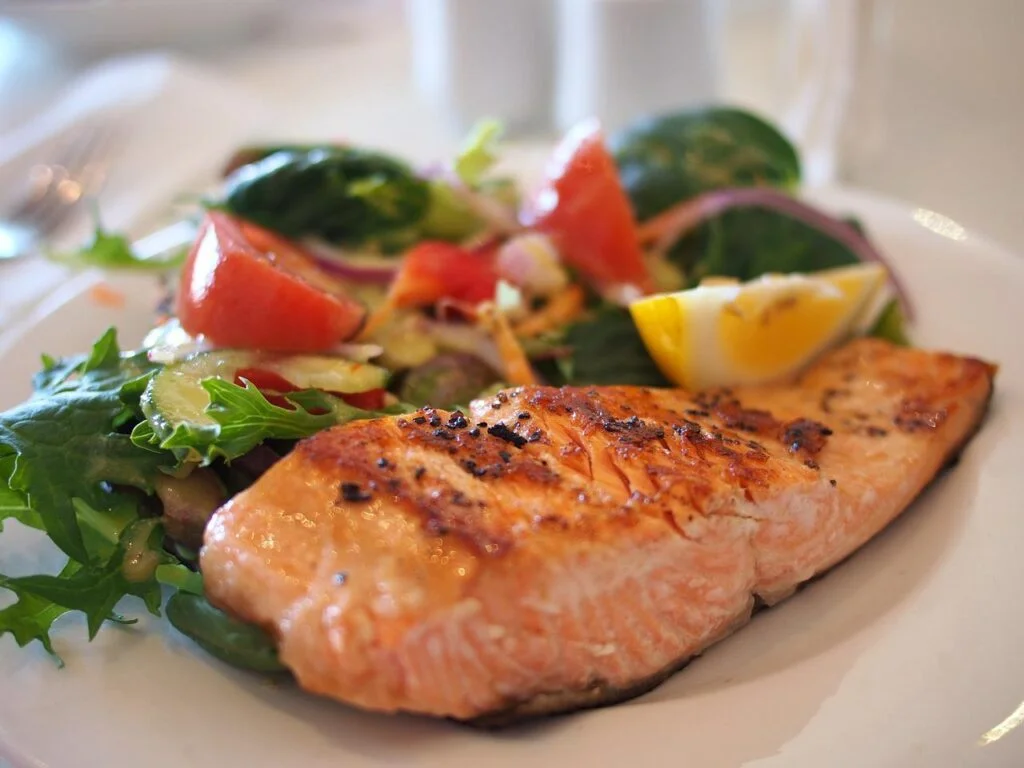
There are many ways substance use disorders (SUDs) impact your nutrition and the physical health of your body and brain.
The most common effects seen in long-term drug and alcohol users are:
-
- Impact on appetite – Depending on what substances are used, people will find that their appetites are suppressed or at times they might overeat. While stimulants tend to suppress appetite, it’s commonly acknowledged that people addicted to cannabis can binge-eat.
- Malnourishment – It’s incredibly common that people with addictions have a poor diet. This is usually because drugs and alcohol are prioritised over maintaining regular healthy habits such as eating a balanced diet. This results in many people becoming malnourished.
- Obesity – This can occur for some people as using substances can impact a person’s metabolism and in some cases might cause the person to eat more.
- Organ functioning impaired – When people use drugs and alcohol, their internal organs are under increased strain trying to rid the body of toxins. The important “jobs” they usually do such as absorbing vitamins, nutrients and amino acids decrease in effectiveness.
- Digestive problems – These are really common for people with addictions and typically include constipation, indigestion, and diarrhoea. Gastrointestinal disorders such as IBS, celiac disease, Lactose intolerance, and Chron’s disease are more likely to develop. All of this can reduce absorption of nutrients.
- Impaired immunity – Substance use can directly and indirectly impact the immune system. Immunity starts in the gut and the point before shows how unbalanced the gut becomes. Also, substances tend to affect white bloodcells and lymph nodes.
- Hypoglycemia – This linked to fluctuation in blood sugar levels. This is due to poor diet and can go on to cause diabetes.
- Brain functioning – Neurotransmitters are reduced and don’t work as effectively.
Did you know?
- Sugar crashes can cause alcohol cravings.
- Low energy from a poor diet can be a trigger for stimulants, such as cocaine.
Alcoholism Effects On Nutrition
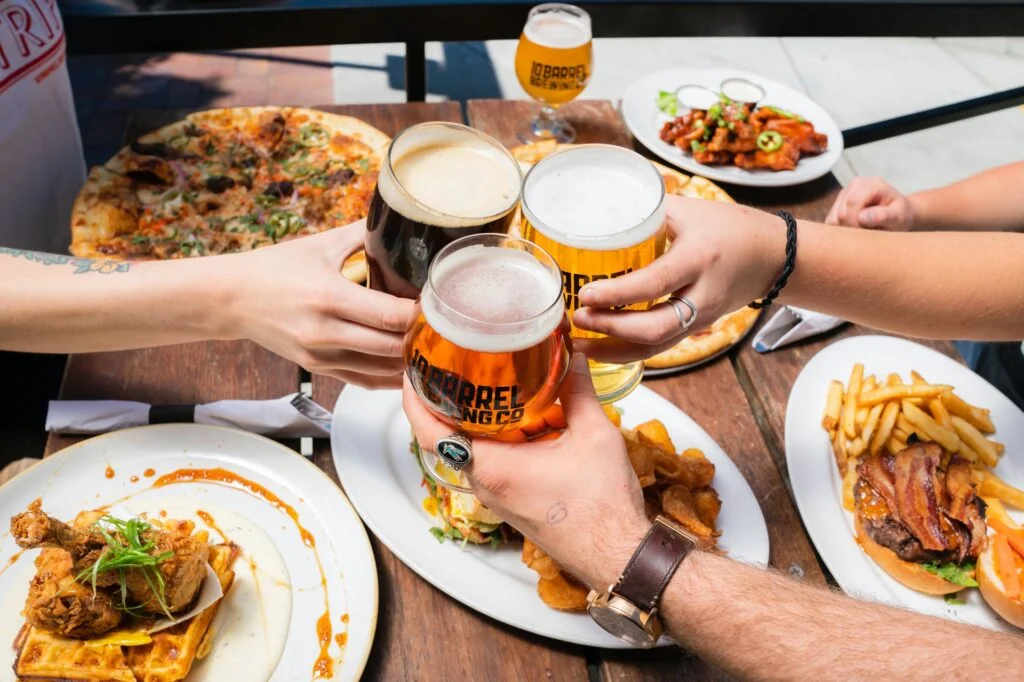
Alcohol is high in calories which can make heavy drinkers feel sated.
These calories, however, are empty.
There is no nutritional value in them and drinkers become malnourished.
Alcohol impacts how the intestines, pancreas and liver absorb fats, proteins, and carbohydrates and all the essential nutrients they offer.
Research shows heavy alcohol use causes deficiencies in the following vitamins and nutrients:
- Vitamin A
- Vitamin B6
- Thiamine B1, which can go on to cause alcohol-related dementia known as Wernicke-Korsakoff Syndrome
- Folic acid
The body is no longer able to absorb, store, metabolise, or activate the nutrients you need to function healthily.
Heavy alcohol use leads to reduced calcium and magnesium levels.
It’s also linked to swollen lymph nodes and this implicates the immune system and becomes a risk factor for cancer.
Cannabis Effects On Nutrition
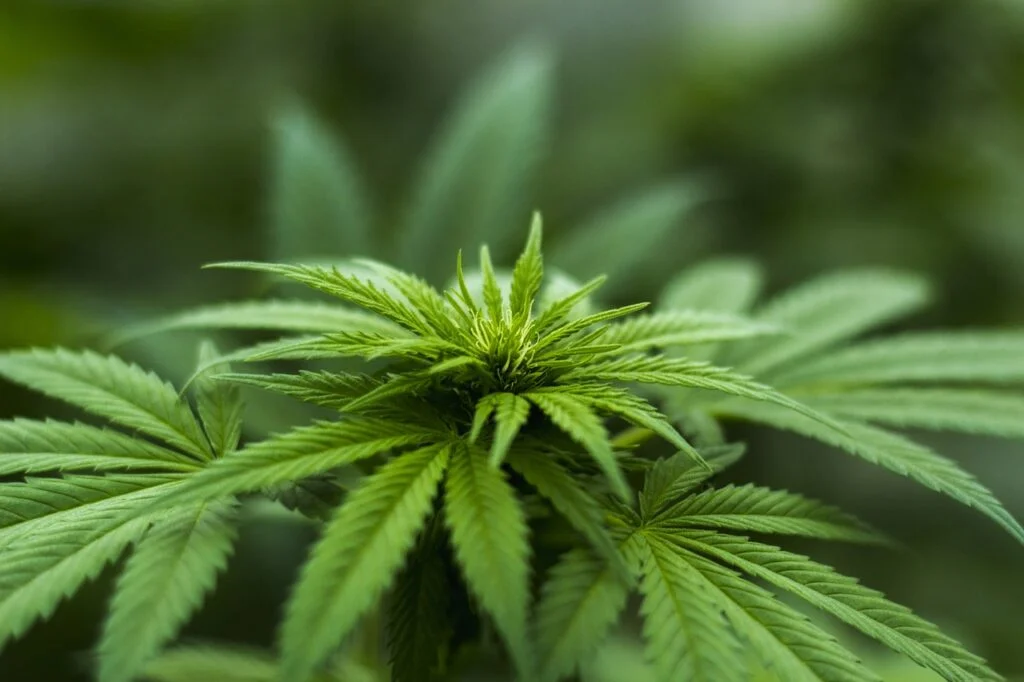
There are some accounts that report long-term cannabis use as being linked to low omega-3 and omega-6 levels.
When people are deficient in these fatty acids it can take longer for wounds to heal and increase chances of infections.
Interestingly, some argue that edible cannabis (rather than smoking it) actually has nutritional benefits.
It should, however, be remembered that THC strains are psychoactive and come with psychological side effects and addictive potential.
Hemp and CBD varieties are non-psychoactive and indeed hemp is increasingly used in food products in the plant-based world.
Opiates And Effects On Nutrition

For people with a severe addiction to opiates, their focus of attention is usually on seeking the next high rather than on eating.
Heroin is known to damage intestines which helps with nutrient absorption, and the liver which processes and removes waste and toxins.
Electrolyte balance is affected by heroin use and it can also cause hyperkalemia, which is when your potassium level increases.
Hyperkalemia can be fatal.
Research states that to recover from opiates addiction, patients need to consume even more amino acids and protein during the treatment process.
A well-balanced diet increases nutrition and can improve engagement in rehab, detox and therapies.
Simulants And Effects On Nutrition

Like with heroin users, people addicted to stimulants are usually focused on the getting the next high over prioritising self-care and a good diet.
Research shows cocaine acts directly on white blood cells and affects the immune system.
It’s also increases the risk of cancer.
As well as this, the following symptoms can occur:
- Imbalance of electrolytes (essential minerals such as potassium, zinc, and magnesium).
- Muscle wastage and weight loss.
- Weakened respiratory system and correlated increased risk of respiratory diseases.
- Difficulties in and slower for wounds to heal.
- Cardiac disturbances including palpitations and heart attacks.
The Importance Of Nutrition When Healing From Addiction
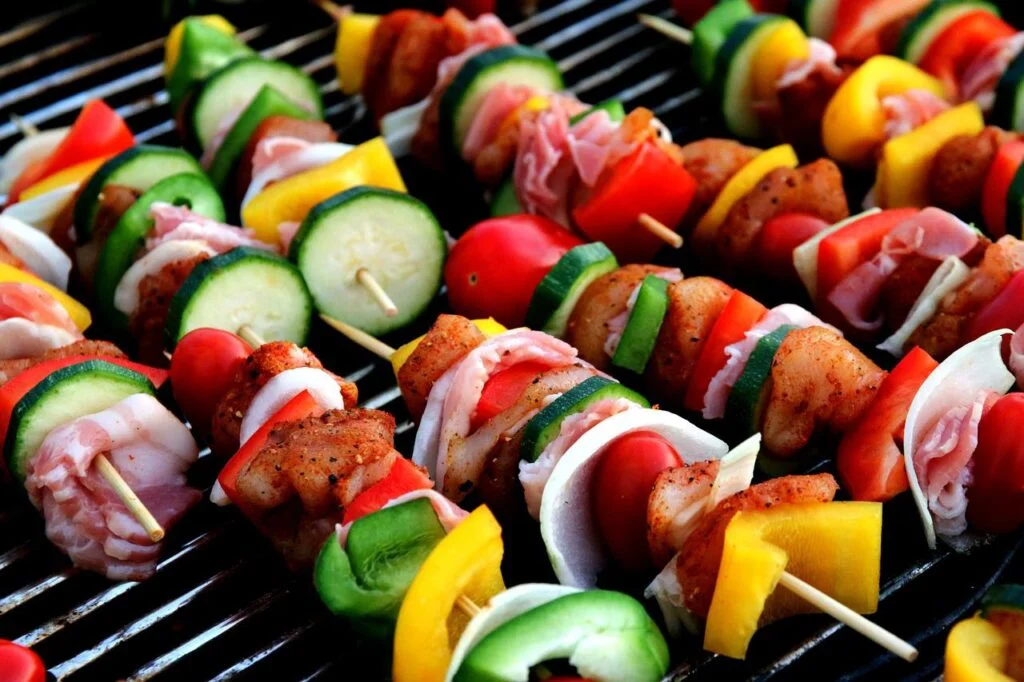
Everyone understands that food is essential to survival.
For people in recovery a healthy, well-balanced diet can support them to heal more quickly.
A person might opt to eat unhealthy foods, but this would result in a lack of nutrients, reduced energy and likely increased levels of anxiety and depression.
Following a healthy diet allows a person to obtain and absorb vitamins and minerals.
What do all these healthy nutrients do to support healing?
- Help repair cells, muscles, and body tissue
- Support the immune system
- Improve mood
- Support healthy sleeping patterns
- Increase energy
When people in recovery follow a balanced diet, they’re less likely to relapse.
Nutrition, The Brain And Addiction
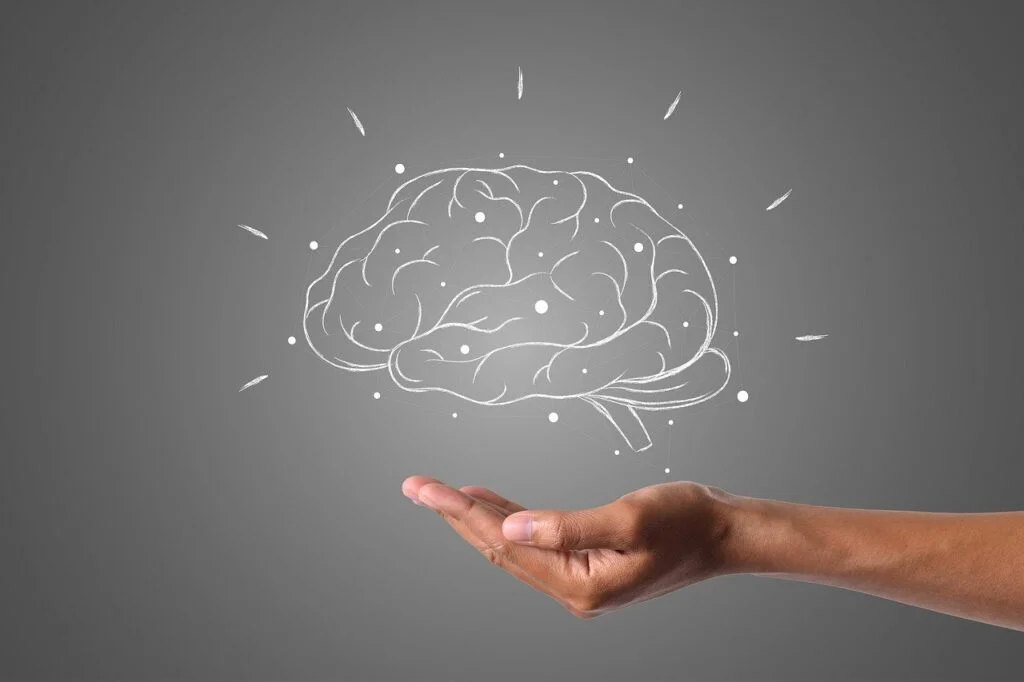
One study claims that a healthy gut means a healthy brain.
This thought is supported throughout the health and medical world.
When brain chemicals are balanced and supported through all the essentials it needs from foods (such as amino acids), mental cognition improves and the central nervous system is supported to regulate more effectively.
This can help a person to participate in treatment settings, be more open to learning and be receptive to change.
Neuroplasticity And Nutrition
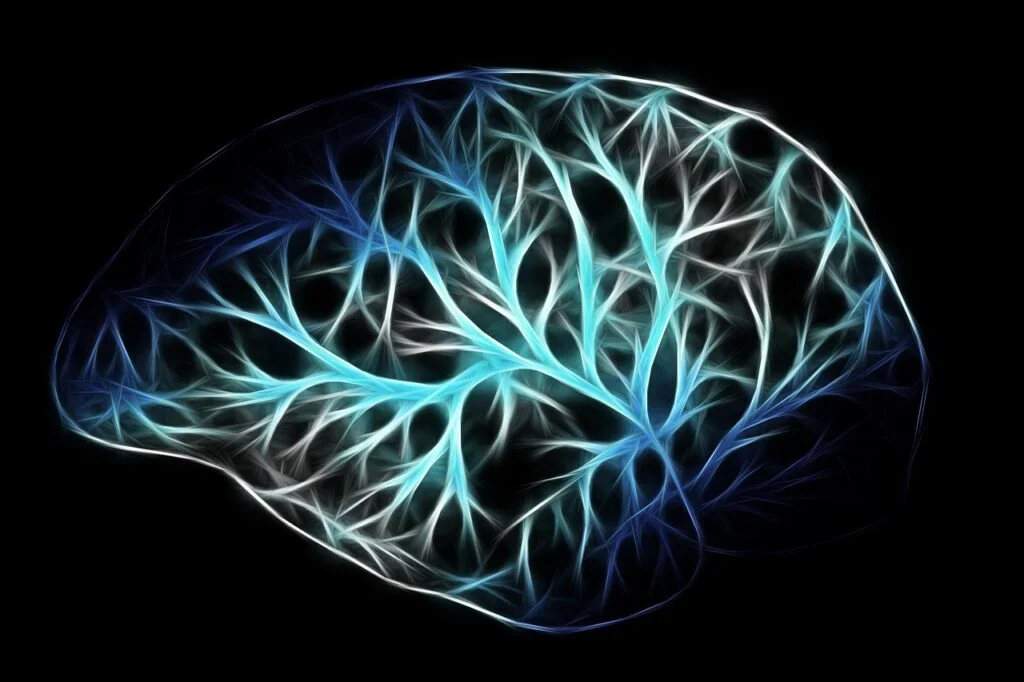
Eating healthy foods helps to create new neural pathways in the brain.
This is instrumental in recovery when people need to create new ways of thinking and new ways of behaving.
When you do something new, the brain creates a new neural pathway and this pathway will become stronger and easier to follow the more you do the new action.
Nutritious foods support the brain by taking amino acids and omegas to it.
Healthy eating helps your brain to develop the new pathways much more easily and can also alter connectivity so that you can become more flexible in your thinking.
This is particularly important when you’re in a space of growing and change.
Nutrition At A Private Rehab Clinic

When you go to a private clinic for treatment, you’ll meet with a doctor.
They will assess your weight, whether you are malnourished and ascertain whether any eating disorder is apparent.
Weight gain can occur in relation to substance use and withdrawal and this can increase the chance of relapse in women.
These types of things will be discussed when you first enter the clinic.
The staff will develop a nutrition plan to suit your requirements if anything specific needs to be allowed for.
In-house chefs create delicious and nutritious meals that support your body to heal.
The food plans offered to residents at rehab are designed especially to help you repair muscle and cognitive functioning.

The fact that you’ll be getting amino acid-rich foods also means your brain is supported in its production of dopamine, serotonin and adrenaline.
This allows you to have an improved attention span and to start to feel better mentally.
Being at rehab and making note of the food that is provided demonstrates what’s advisable to eat outside of rehab too.
You’ll have an idea on what you can prepare at home when you leave based on what you eat during your stay.
Why Following Rehab Nutrition Advice Helps

By following the food plan offered at a private clinic, not only is nutrition accounted for, but good habits around eating are developed.
Cocaine users, for instance, are known to eat unhealthy meals late at night.
Opiate users meanwhile regularly go for sugar and alcohol.
Eating a rehab diet balances sugar, electrolytes and nutrients, but also gets you into following regular meal times.
Developing healthy habits and rituals around food improves mental health and makes rehab easier.
Essential Nutrition For A Healthy Lifestyle
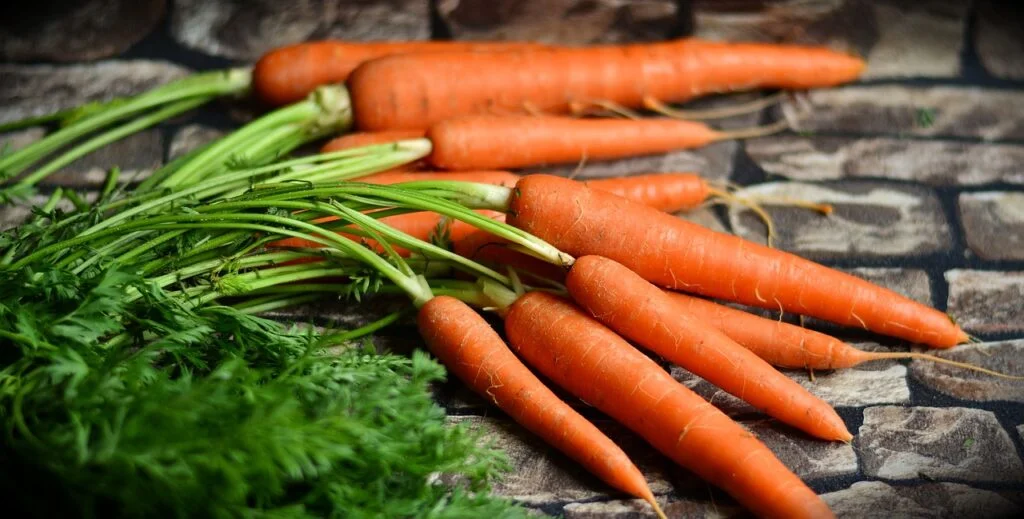
There are essential foods that support everyone -whether suffering from addiction or not – to be healthy and live to their optimum.
Foods that help you to grow, repair and maintain health.
The food groups you need a balanced diet of are:
- Complex carbohydrates such as rice and potatoes
- Healthy fats (monounsaturated and polyunsaturated fats) which are found in avocado, eggs, and nuts
- Protein such as fish, chicken, beans and pulses, and tofu
- Vegetables and fruit
- Vitamins and minerals which are found in healthy foods
It’s also highly important to support the body through detox by drinking lots of water.
How To Maintain Healthy Nutrition After Rehab
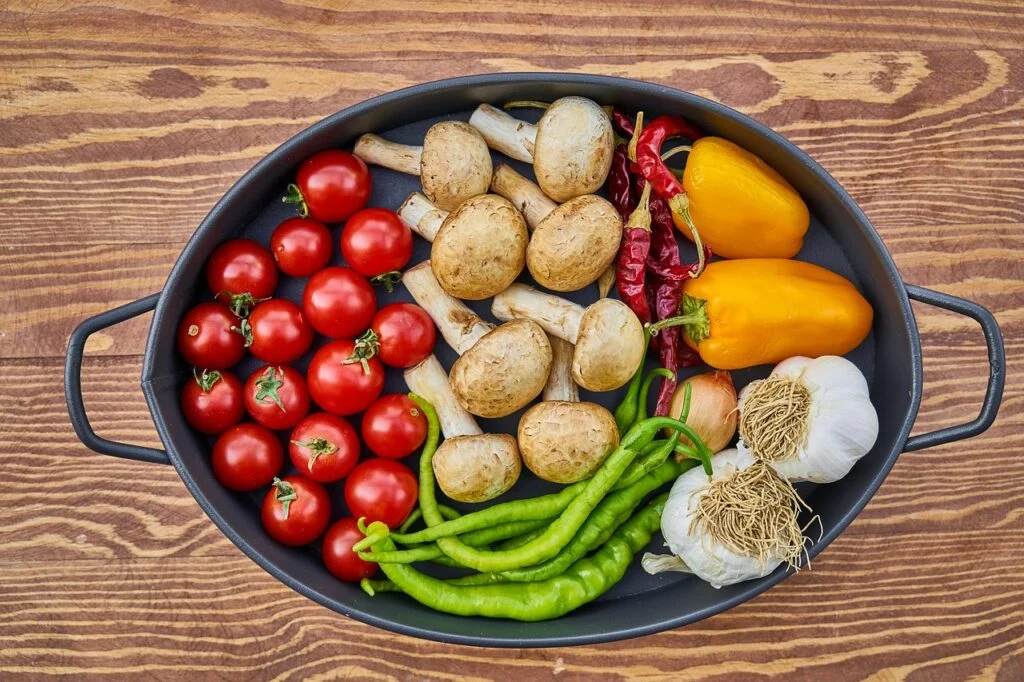
When you leave rehab, it’s really helpful to put time into meal planning.
This will support you to keep looking after your brain and body, but can also become a space where you view food preparation and cooking as a meditation or hobby.
You can put time into researching recipes, ingredients and developing your kitchen skills.
Another way to help you stay on track with food and nutrition is to eat with others.
This would ideally be people who support your recovery journey and who enjoy cooking or eating with you.
Finally, make it a priority to stick to regular meal times.
The most simple rituals can really help you to stay focused by offering you structure.
Final Thoughts

Interestingly, nutrition might not always be the first factor people think of in relation to recovery from addiction.
The saying “you are what you eat”, though, does actually ring true.
Eating a well-balanced and nutritional diet can support people to recover much more effectively from the ravages of drugs and alcohol.
Entering a rehab clinic means that all your nutritional needs are planned for.
There you learn what to eat and the importance of developing a routine around eating.
To find out more about nutritional health, recovery, and rehab clinics, call Rehab Recovery today.


